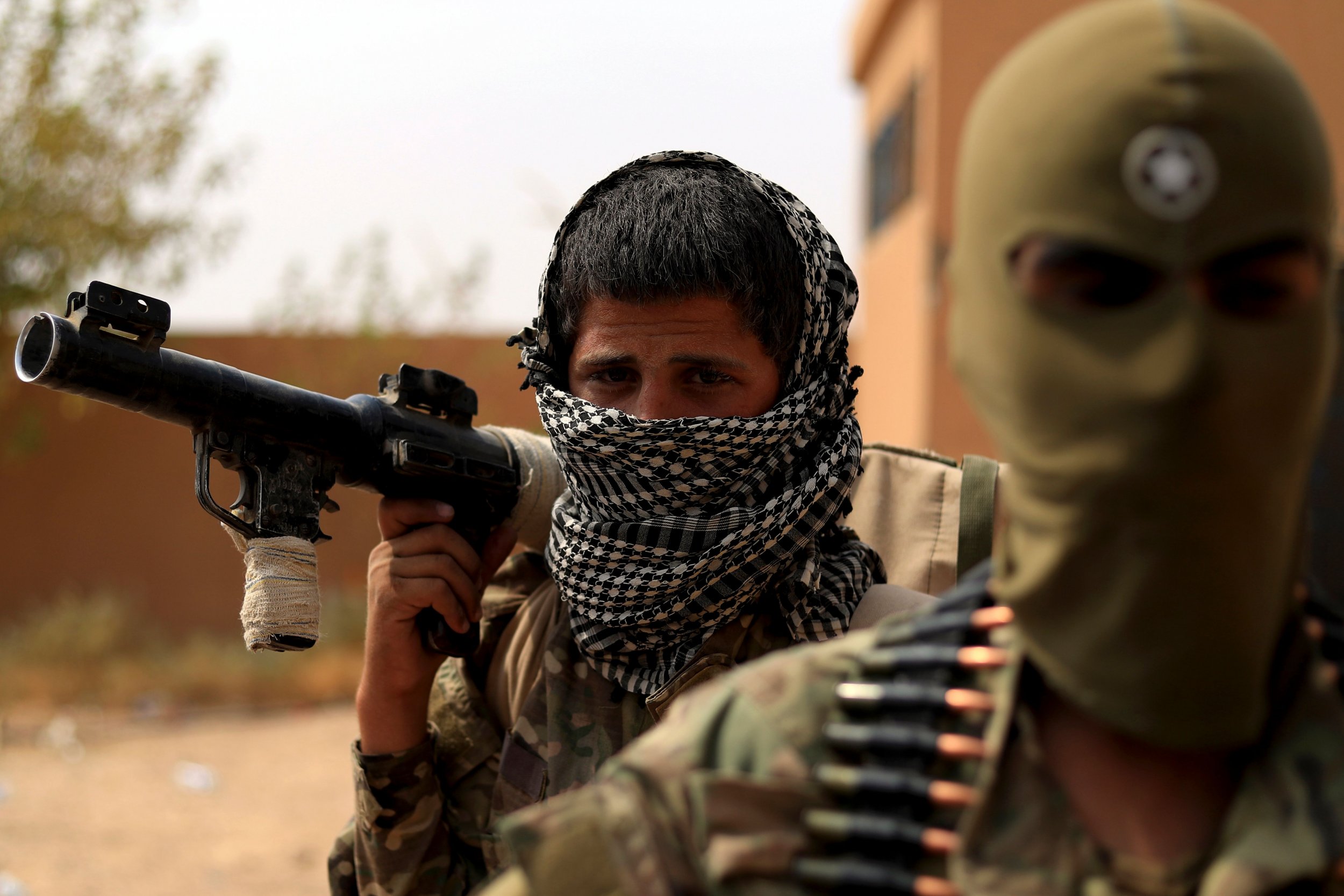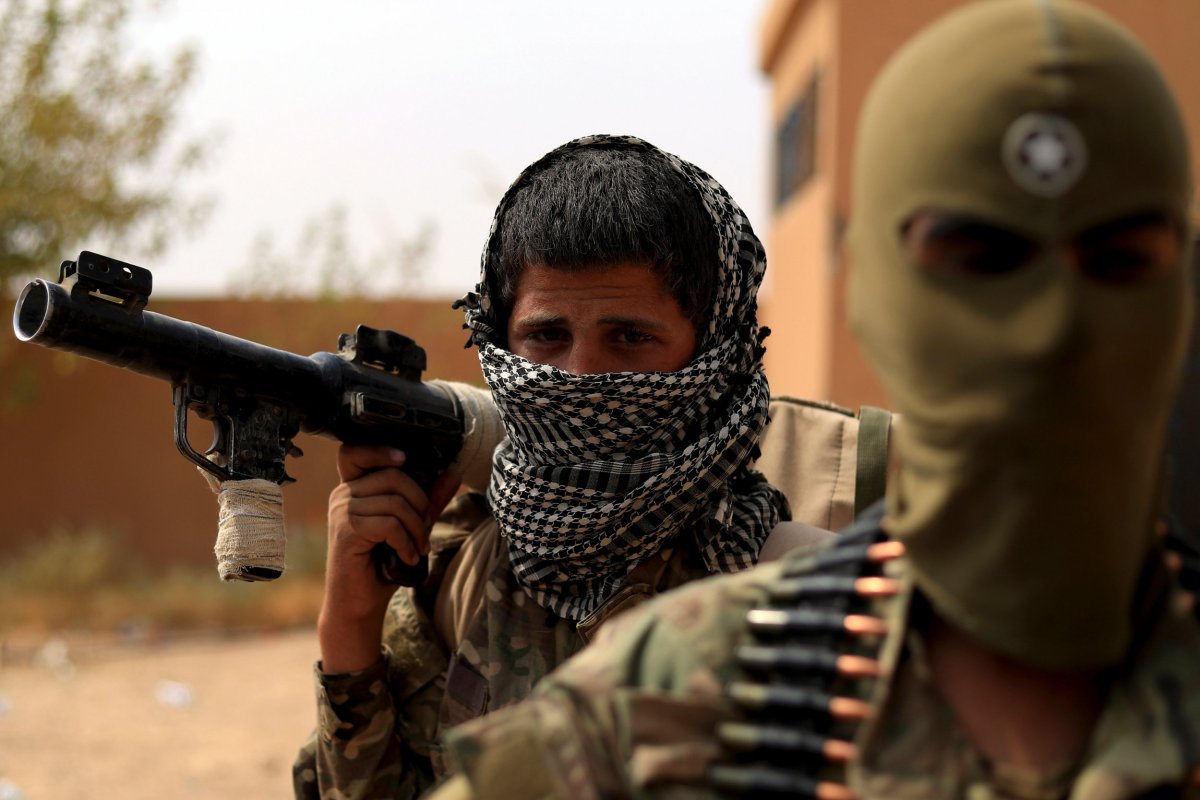
Russia's top diplomat has accused the United States of trying to permanently divide Syria by supporting Kurdish separatism, a move he called illegal and a violation of the war-torn country's sovereignty.
In an interview with the French website of Russia's state-run RT channel, along with France's Paris Match and Le Figaro, Russia Foreign Minister Sergey Lavrov accused the U.S. of "illegally trying to create a quasi-state" in eastern Syria through its support of the Syrian Democratic Forces, a mostly Kurdish faction battling the Islamic State militant group (ISIS). With the Pentagon's backing, the group has established autonomy over roughly a quarter of Syrian territory.
The move presents a challenge to Syrian President Bashar al-Assad, an ally fo Russia and Iran who has mostly overcome a 2011 rebel and jihadi uprising supported by the West and its regional allies. Lavrov said that the U.S. "planned to establish a territory that would be a kind of a prototype of a new state or it will be another round of the most dangerous game with Iraqi Kurdistan, the idea of the so-called unified Kurdistan."
"I do not exclude that the United States in this area, as a rule, tries to maintain the situation in such a heated state so that no one can calm down," Lavrov added. "In such muddy waters, it is much easier for them to catch the fish they want. It has never led to any good."

The U.S. has teamed up with Kurdish fighters to defeat ISIS in both Iraq and Syria and their victories have prompted separatist desires among Kurds in both countries. As an ally of the Iraqi government, the U.S. did not back an Iraqi Kurdish push for statehood that ultimately failed last year, but has supported the self-ruling, majority-Kurd administration across stretches of northern and eastern Syria as an alternative to the central government in Damascus, which Washington opposes.
Unlike the insurgents initially supported by the U.S., however, the Syrian Democratic Forces have not called for Assad's downfall. The group's political wing, the Syrian Democratic Council, has entered into negotiations with the Syrian government in hopes of retaining a degree of independence, a sensitive issue as Assad has vowed to regain every inch of territory, by diplomacy or by force.
Talks between the Syrian Democratic Council and the Syrian government have reportedly stalled, however, as the two sides failed to compromise. Syrian Foreign Minister Walid al-Muallem, who has expressed his willingness to discuss "some form of self-management within the borders of the Syrian Arab Republic" once the battle against ISIS was over, blamed the U.S. for talks collapsing late last month, saying that "the Americans entered Syria without legitimacy and their presence strengthens the Kurds' tendency to secede."
Pro-Syrian government fighters and Kurdish forces have both fought with and against each other at times. Tying them together are a mutual enmity for Turkey, which considers Assad an illegitimate leader and considers the Kurdish People's Protection Units (YPG) a terrorist organization due to alleged links to an insurgency at home, and the Islamist-led insurgency trying to defeat both of them.
In a final push against ISIS, both pro-Syrian government fighters and the Syrian Democratic Forces are struggling to wipe out the jihadis on opposite banks of the Euphrates River in eastern Syria.

On the other end of the country, another final stand threatens to erupt into violence. The northwestern province of Idlib, the final major stretch of territory under rebel and jihadi control, was the subject of an agreement last month between Russia and Turkey, who sought to avoid an all-out government assault there. Warning of a humanitarian crisis that could ensue from a Syrian military operation in the province of 3 million people, the U.S. threatened potential military intervention, especially if chemical weapons were employed.
Russia and Turkey's agreement established a de-escalation zone that has so far witnessed the removal of heavy weapons as mandated by the arrangement. The refusal of jihadi groups, such as Hayat Tahrir al-Sham, to retreat, however, threatened to a ceasefire collapse.
On Sunday, Assad warned that the deal in Idlib was a "temporary one" and that he would eventually restore his government's control of the province, along with the rest of the country. In Friday's interview, Lavrov also said the situation was "temporary," because "the end of the story will be only when the power of the Syrian people is restored in Syria and all those who are not invited there will leave."
Uncommon Knowledge
Newsweek is committed to challenging conventional wisdom and finding connections in the search for common ground.
Newsweek is committed to challenging conventional wisdom and finding connections in the search for common ground.
About the writer
Based in his hometown of Staten Island, New York City, Tom O'Connor is an award-winning Senior Writer of Foreign Policy ... Read more
To read how Newsweek uses AI as a newsroom tool, Click here.








